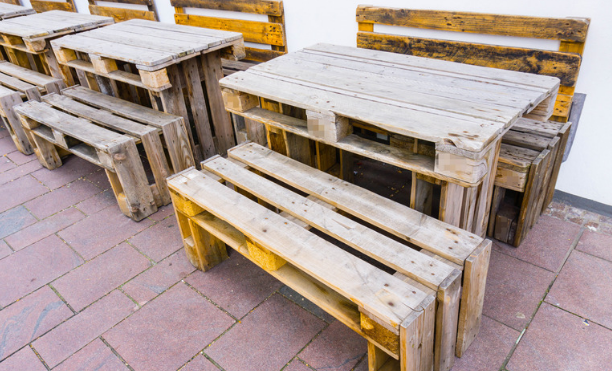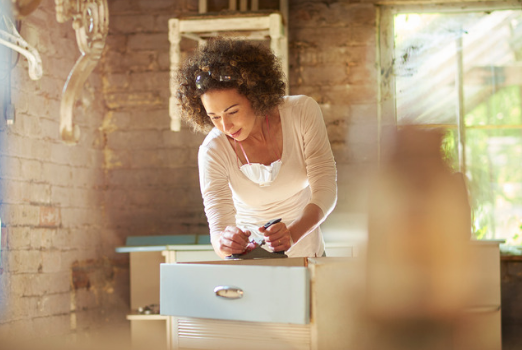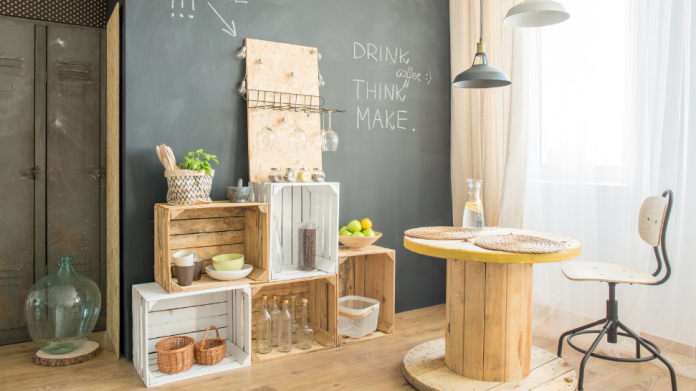Table of Contents
Upcycling is a relatively recent phenomenon, describing the repurposing and re-decoration of old and decrepit furniture for new use. Part DIY project, part act of revolutionary artistic expression in an increasingly commodified world, upcycling is related to but distinct from the ‘make do and mend’ philosophy of post-war Britain, and an excellent way to focus your time – but you will need some things before you start…
A Source of Old Furniture
 It should go without saying that you can’t upcycle furniture without having furniture to upcycle! You might have gotten a taste for the practice from modifying old furniture in your or a family member’s house, but finding a source of old and unloved furniture can give you endless possibilities for new projects and ideas. Charity shops are always the best place to start for finding a great deal on cheap second-hand furniture, while online B2B marketplaces such as Gumtree can put you in touch with local people looking to get rid of their older items.
It should go without saying that you can’t upcycle furniture without having furniture to upcycle! You might have gotten a taste for the practice from modifying old furniture in your or a family member’s house, but finding a source of old and unloved furniture can give you endless possibilities for new projects and ideas. Charity shops are always the best place to start for finding a great deal on cheap second-hand furniture, while online B2B marketplaces such as Gumtree can put you in touch with local people looking to get rid of their older items.
A Plan of Action
With your next upcycling project safely at home and ready to go, your next step should be to figure out exactly what you’d like to do with it. It might be tempting to just get started, improvise and see where you end up, but upcycling can involve destructive and irreversible processes – meaning you can realise what you’d actually like to do too late into the process, and be left with a useless piece instead of a well-thought-out finished product.
The Tools for the Job
 Of course, in order to carry out your vision to its fullest extent, you will need the essential tools for the job. Hand-me-down tools and cheap knockoffs from Amazon won’t quite cut it, especially when trying to perform intricate work on a near-finished project; instead, investing in tools from high-quality brands like Milwaukee can ensure quality performance. You will also benefit from tool longevity – buy quality, buy once. You will at the very least need a cordless drill, but woodworking tools such as files, chisels and saws can allow you to reshape raw materials with ease. Sewing equipment can also enable you to carry out your own upholstery, a finishing touch that often makes a piece of furniture.
Of course, in order to carry out your vision to its fullest extent, you will need the essential tools for the job. Hand-me-down tools and cheap knockoffs from Amazon won’t quite cut it, especially when trying to perform intricate work on a near-finished project; instead, investing in tools from high-quality brands like Milwaukee can ensure quality performance. You will also benefit from tool longevity – buy quality, buy once. You will at the very least need a cordless drill, but woodworking tools such as files, chisels and saws can allow you to reshape raw materials with ease. Sewing equipment can also enable you to carry out your own upholstery, a finishing touch that often makes a piece of furniture.
Reference Resources
Taking on an upcycling project is relatively low-pressure in comparison to building a furniture piece from scratch, but you will nonetheless get out what you put in – and knowing more about the construction methods for certain pieces can help you work with it more. As such, you should make a habit of collecting reference materials, from woodworking and haberdashery books to basic courses online about working with a tool or material.
Time
 Lastly, perhaps the most important resource for embarking on an upcycling project is time. Rome wasn’t built in a day, and even the simplest project can require care and patience to carry out to the best possible degree.
Lastly, perhaps the most important resource for embarking on an upcycling project is time. Rome wasn’t built in a day, and even the simplest project can require care and patience to carry out to the best possible degree.





































